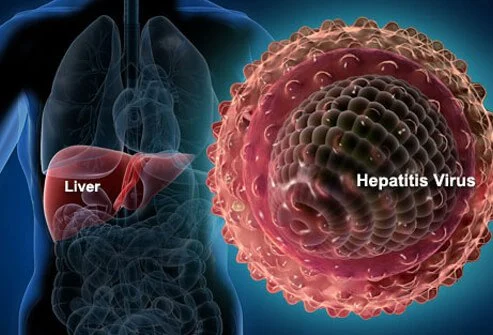
A hepatologist, Dr. Paul Oboro, has prescribed the community pharmacy approach as the best method to track and find missing cases of viral hepatitis in the country.
Speaking to journalists yesterday (July 4, 2022) in Abuja, he said the approach would create access to diagnosing more Nigerians across the country.
Science Nigeria reports that over 18. 2 million Nigerians are infected with viral hepatitis, but awareness, diagnosis, treatment and early reporting of Hepatitis B and C remain low in the country.
Hepatitis is the inflammation of the liver. However, the five most common viral hepatitis are A, B, C, D, and E. Recently, the hepatitis G virus was identified.
While types A and E are transmitted through contaminated food, water, poor hygiene and close contact with carriers of the virus, the B, C and D variants are transmitted through blood, sexual intercourse, bodily fluids, kissing, sharing syringes and blades, and touching wounds of infected persons.
The newest variant, G, is very transmitted like B, C and D.
According to studies, the A and E variants are acute and last for a short time (less than six months), while B, C, D and G may progress to chronicity; more than six months.
Symptoms of viral hepatitis start from the absence of symptoms (asymptomatic)) to mild or moderate features such as jaundice (yellowish discolouration of the skin and eyes), poor appetite, malaise and progressing to chronic liver failure.
Hepatitis remains a disease of public health importance and the mortality rate from both infections was still alarming, despite limited globally progress in addressing the scourge.
So far, 16 million Nigerians are estimated to be infected with Hepatitis B and 2.2 million with Hepatitis C, representing estimated prevalence rates of 8.1 per cent and 1.1 per cent, respectively.
In 2019, 3.8 per cent of the world’s population were living with chronic Hepatitis B virus infection and 0.75 per cent with it Hepatitis C infection.
Oboro further said that some Nigerians are living with hepatitis infections and do not know it. He prescribed a “simple treatment” for variant C while B is treatable and preventable with a vaccine.
He said that advances in medical technology now mean that the new, direct-acting antivirals (DAAs) enable 95 per cent of people completing a course of treatment to be cured of HCV within eight or 12 weeks of daily tablets.
Oboro advised that the collaboration among public health agencies and pharmacy organisations, with particular emphasis on community pharmacies, should focus on designing and implementing strategies for providing vaccines requiring multiple doses.
He said that this was an essential step to effectively mobilise pharmacists to increase the nation’s capacity to improve HBV immunisation coverage among high-risk populations, including people who inject drugs.
According to him, the implementation of a successful model for providing multi-dose vaccines has the potential to positively impact population health far beyond opioid use disorder alone.
The expert said that creating an effective model for providing the HBV vaccine series in the community pharmacy setting would likely translate to other preventable diseases requiring the administration of a multi-dose vaccine.
He stressed that the urgency to address the needs of people who inject drugs cannot be understated.
“Community pharmacists play a critical role in our nation’s pronged approach to addressing the opioid crisis and must be mobilised to help prevent further increases in acute HBV infection rates across the country,” he said

